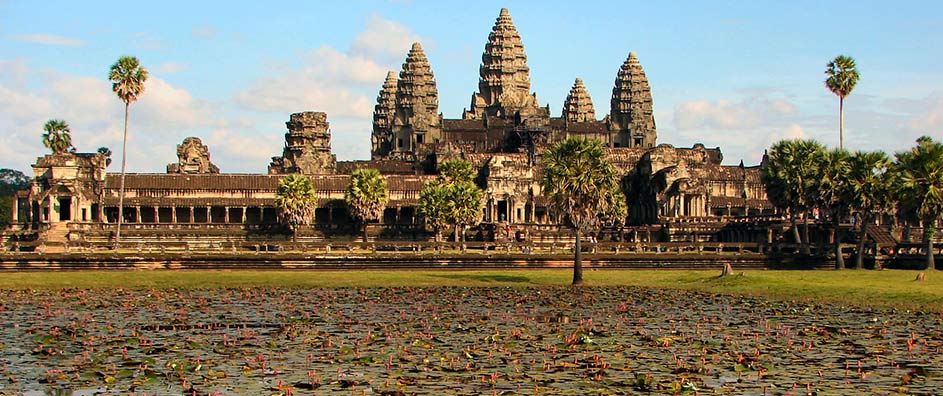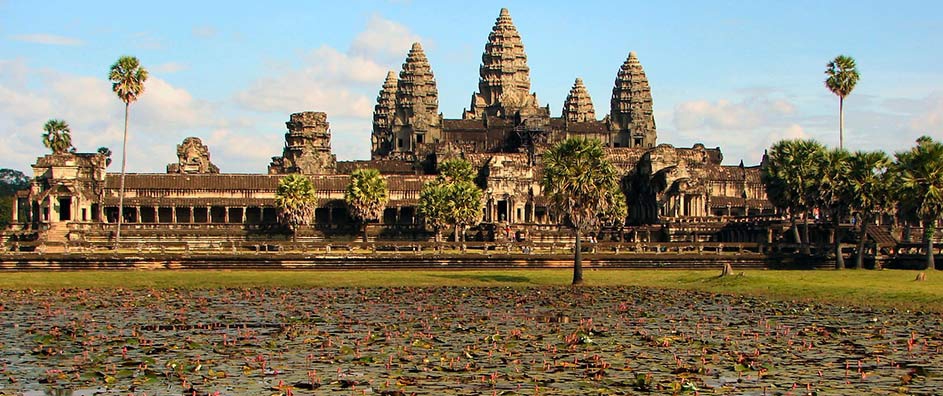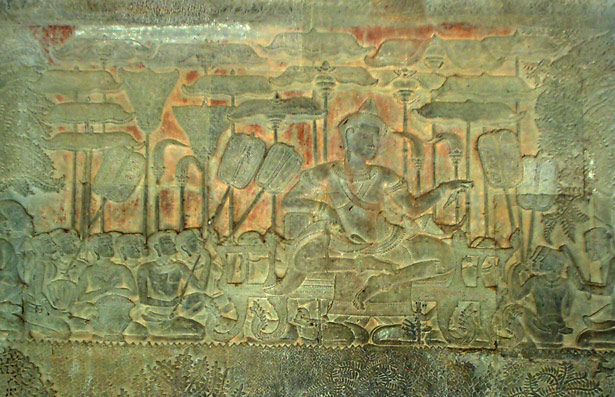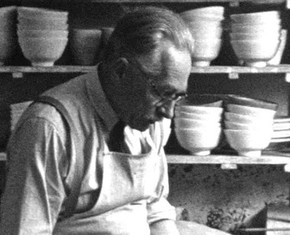The views expressed in our content reflect individual perspectives and do not represent the authoritative views of the Baha'i Faith.
 I teach English to earn my keep (and a visa) and to offer what professional service I can to hyperactive modern China. That means my family, in addition to beefing up our world citizenship credentials, can help share the Baha’i system of knowledge. The work is thrilling, confirming, daunting.
I teach English to earn my keep (and a visa) and to offer what professional service I can to hyperactive modern China. That means my family, in addition to beefing up our world citizenship credentials, can help share the Baha’i system of knowledge. The work is thrilling, confirming, daunting.
When the world’s largest human migration – the Chinese returning to their home towns for Spring Festival – occurs, we get to go exploring. Lucky! This year, we explored Thailand and Cambodia. First came a meditation boot-camp, ten days to reflect and withdraw, trying to build some skill in this practice that the Baha’i teachings urge us toward, and about which I still know so little. Next came a cultural pilgrimage to Cambodia’s astounding collection of medieval temple and palace complexes, especially the best known — Angkor Wat.
If you have the chance to see Cambodia’s stony contributions to world culture I recommend it highly. The story of Angkor Wat and its brother and sister monuments will astonish you. I hadn’t realized, though it makes eminent sense with even a scrap of thought, that the ancient Khmer capital area had dozens of temples that created both the technological savvy and the monomaniacal one-upsmanship urge that led King Sharvarman II to build Angkor Wat. This amazing temple, the best-preserved and most ambitious of the tributes to gods and kings that dot the jungles near Siem Reap, is the perfect location to meditate upon human hubris, the power of faith, the impermanence of life, and “the hope that springs eternal”.
After Angkor Wat we took a bumpy and indirect bus trip to Battambang, away from the mass of tourists and through the deep poverty of the average Cambodian life, to a small city that has begun to inspire the Baha’i world. When the Universal House of Justice mentioned Battambang as one of the greatest centres of Baha’i social action in the world, a place that would be among the first in the world to build a local House of Worship, I was humbled. I’d never heard of any of the five communities whose remarkably expanding activities, capacity and social influence have so impressed the Faith’s World Centre. We attended the 19-Day Feast on our first night in Battambang, and it was lovely and welcoming. We were surprised at how small the city’s gathering was until it was explained that the bulk of the believers were in the surrounding countryside.
On our second day, we had tourist plans typical for this part of the country. We rode the bamboo train cars that locals had rigged to allow transportation during the worst of the civil war years. We went to see caves. One was home to millions of bats that left their dark refuge at sunset in an incredibly long procession. Human jaws hung open in amazement. The other was more sobering, a “killing cave” near one of the few modern Buddhist temples not destroyed during the murderous Khmer Rouge era which so grievously battered this struggling country. Nobody knows how many lives were thrown away down that dark and rocky hole. Human skulls and bones gave silent witness to the price of ideology, disunity and hatred.
Yet, back in Thailand, as our holiday travel neared an end, it wasn’t the history, ancient or recent, that most gripped this middle-aged wanderer. Near Battambang, I was moved above all by an open field. A local Baha’i made a map on a small piece of paper, and explained it to our tuk-tuk driver, who’d never been asked to go down this road before. Off we went, bouncing and careening down narrow dirt tracks. My son saw a modest blue sign that labelled a small roadside building: Baha’i Community of Battambang. We saw another, and our driver was mystified by my wife’s request to photograph this unassuming place, one where the local core activities of a world-renewing fellowship take place. A man on a small motorbike stopped us, spoke briefly in Khmer to the driver, smiled to us and said, “Allah’u’Abha!” This hearty Baha’i greeting meant that we weren’t far from a future House of Worship, and that our friend back in town had been busy on his mobile phone.
We followed the smiling man. His English wasn’t superb, but it was enough: this was the place. About 200 metres deep, about a kilometre wide, a field of harvested rice paddies and calmly ruminant cattle marked the place where Cambodians will raise a temple to unity, to peace, and to their localized march towards an ever-advancing, spiritually based civilization. All will be invited to pray and meditate together. Eventually, all will be served by temple-encircling institutions of health care, education and cultural improvement, because this is how Baha’i worship works. In a country that has suffered some of the most horrific symptoms of the ills plaguing humanity, whose economic future seems pinned to the hunger of foreign tourists to visit sites of ancient devotion, the most hopeful – the most real – place of all was this tree-spotted lowland. The vision of a prayerful refuge-to-be, raising its nine sides to the sub-tropical sky, is worth more to me than all the crumbling monuments to the faith and pride of ancient kings. This is the future that Battambang teaches us to see.

















Comments
Sign in or create an account
Continue with Googleor